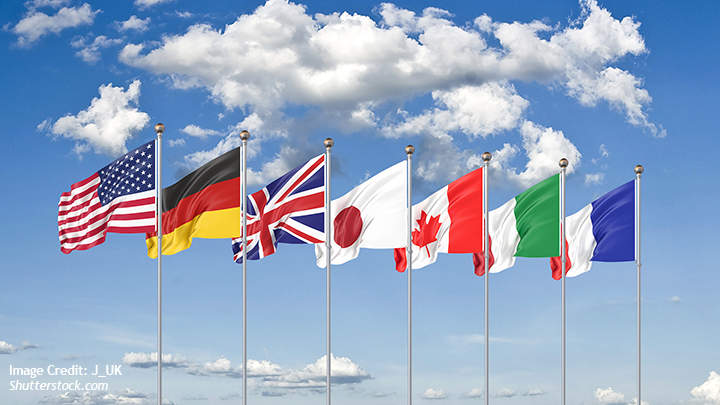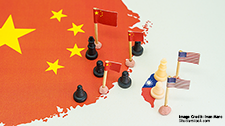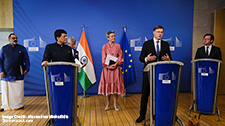The G7’s oil price cap is a perilous gamble

Johannes Nordin
Introduction:
Right before Russia’s Gazprom completely stifled gas flows through the Nord Stream I pipeline, G7 leaders had agreed in early September to implement a price cap on Russian energy exports. By leveraging Europe’s central position in the global maritime insurance industry, these measures seek to lower Russia’s inflated energy income not just from sanctioning states but from third countries as well.
However, the eleventh-hour mechanism carries grave risks and unintended consequences that shouldn’t be ignored.
Related Publications
-
Partners in Peace: Why Europe and Taiwan Matter to Each Other
This book addresses the following fundamental questions: With the EU seeing Taiwan as a partner on its own merit (rather than exclusively through the China factor lens), how can the […]
-
Navigating the Indo-Pacific: How Australia and the EU Can Partner for Peace, Stability, and Prosperity
To navigate the choppy waters of the Indo-Pacific, the EU and Australia must be on the same wavelength regarding shared interests in rules, values, and an open and liberal economic […]
-
Nepal Is Hardly China’s Best Bet in the Himalayas
In July, Nepal’s fractious politics witnessed yet another churning in a span of months: 72-year-old veteran politician Khadga Prasad Sharma Oli of the Communist Party of Nepal–Unified Marxist Leninist (CPN–UML) […]
-
Taiwan-PRC Crisis: What Cross-Strait Conflict Could Cost Europe
The escalating tensions between Taiwan and China pose significant economic and strategic challenges to the European Union, such as the inaccessibility of Taiwanese inputs, market, and capital. This issue brief […]
-
Trade, Connectivity and Supply Chains in EU-India Relations
In the decade and a half since 2007 when the EU and India first started their FTA negotiations, the world economic order has undergone a sea change. During that period, […]




